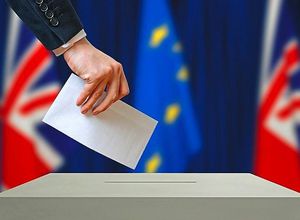Nigel Hastilow takes a look at ‘unconscious bias’
Sorry but I’m biased. I know I am. I’m biased against all sorts of things but at least I know more or less what my biases are.

So I thought it would be a good idea to get some training, in the hope that it would make me more tolerant and exclusive.
After all, nobody likes being a bigot by accident. If you must be bigoted then the least you can do is be consciously bigoted.
At least, that’s what I was thinking when I subjected myself to an hour ‘unconscious bias’ training in an attempt to discover how the industry – and it is an industry – goes about promoting ‘equality and inclusion in the workplace’.
What I found, first and foremost, is that the industry itself is clearly riddled with unconscious bias. The lecturer, who works for an organisation called The Employers Network for Equality & Inclusion (no apostrophe – I find I am biased against people who do not punctuate properly), was talking about ‘the ways we discriminate against people in society’.
She twice referred to her father, who is in his 70s, as ‘racist, sexist, Brexitist’.
It was at this point my blood pressure went off the scale because it seems – consciously or unconsciously – our lecturer is biased not merely against racists and sexists but against people who voted for Brexit as well.
I grant you it is reasonable to be biased against people in the first two groups. Nobody likes a racist or a sexist. But a ‘Brexitist’? A mere 17.4 million people voted for Brexit. That’s 52 per cent of everyone who went to the polls. The biggest vote for anything ever in British democratic history.
And yet all these people were written off in the same breath as racists and sexists.
Perhaps it’s not a surprise, coming from an organisation dedicated to weeding out any politically-incorrect thought anyone might possibly have. Yet in lecturing us about the evils of unconscious bias, we were discovering the unconscious biases of the very organisation dedicated to tackling the alleged problem.
It might not have been so bad if this was the only contentious comment we endured.
But many of the claims were dubious. For instance, we were told that eight out of 10 managers admit discriminating against job applicants with regional accents.
That can’t be true. If it were, nobody with a regional accent – Black Country, say, or Brummie – would ever get a job. It seems more likely that, if such a survey is based on any evidence at all, it was limited to a few London-based bosses recruiting for London-based jobs.
Then, as some kind of proof about how unconscious bias holds back business, we were treated to a fairy story about Perry the Peacock.
Perry finds himself being employed by penguins who gradually seek to hide his beautiful plumage and encourage him to become a penguin too. Perry finally has enough, walks out, sets up his own company, employs all sorts of other birds and animals and creates a far more successful business.
Listening to this, you do wonder what planet we are on. Does anybody really take this stuff seriously? Yet apparently employers, desperate to be right-on and inclusive, pay good money to subject their staff to it.
Evidence was put forward about how unconscious bias holds companies back. A report by management consultants McKinsey claims employers with a ‘more diverse workforce perform better financially’.
This may be true but which came first, the financial success or the diversity? The answer isn’t clear. The report doesn’t seem to take into account the question of a company’s financial position when it decided to become more diverse.
For instance, it is easier for an already-successful business making good profits to make a conscious effort to widen the diversity of its workforce and senior managers than it would be for a company already struggling to stay afloat.
Then it turns out – ‘shockingly’, we are told – that beautiful people earn more money than plain people. It seems employers have an unconscious bias towards taking on attractive colleagues.
This, it seems, is some sort of a sin. But is there really anything wrong with preferring to work with someone who looks attractive rather than someone who is not? Surely that’s just human nature and not really something anyone would want to change. Even ugly people appreciate beauty.
Mind you, it turns out our unconscious biases can allegedly lead us into trouble. Since they decided it was sexist to use just female names for tropical storms, the names alternate between men and women.
When a storm is named after a man (even Brian, presumably), people take it seriously. When it’s got a girl’s name, we don’t worry as much and take fewer precautions because we think women are the gentle sex.
Maybe that’s true. But after the Brexitist slur, my biggest bias is entirely conscious – it’s against politically-correct do-gooders trying to bend human nature to their will.





